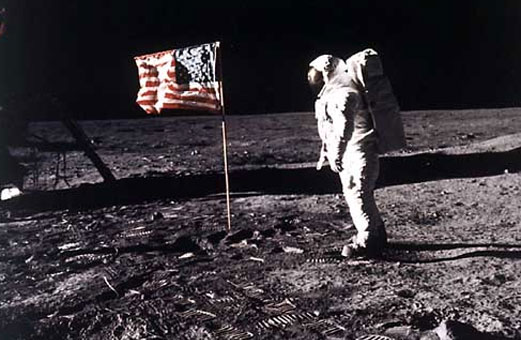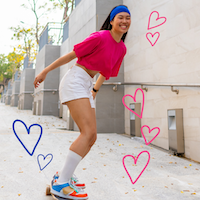RIP Neil Armstrong: Why you should care about the man who took one giant leap for mankind

I admit it: I am a total space groupie. Out of all the amazing
people I have met, two I am still awestruck over are John Glenn and
Sally Ride. John Glenn, the first American to orbit the earth, was
probably one of the kindest, sweetest, most humble men you would ever
want to meet.
Sally Ride, America's first woman in space, on the other hand was as
tough as nails. But, you know, that comes in handy when you stroll
around in the middle of space tethered only by a cable the width of your
finger while traveling 16,000 mph on a craft that's hundreds of
thousands of miles from earth.
Hearing her tell that story was totally amazing but she spent most
of the evening highlighting the embarrassing fact the Soviets beat us by
20 years (yes, Sally was the first American woman but not the first
woman by a long shot, something most people don't really know). She
hated the inequality in space--and in math and science, which is why she
asked to have dinner with me (really, when Sally Ride calls and asks if
you want to have dinner, there's only one answer). The fact so many
girls are excited about math and science is thanks to her work with
STEM, a program that broke down barriers for girls who wanted to study
those fields.
When they retired the space shuttle earlier this year, I watched it
fly for the last time. While I understand the economics, essentially
dismantling the manned space program is just tragic. Yes, the Mars Rover
is nifty but it's going to excite girls about space about as much as
drones are going to excite girls to be Navy pilots (and, yes, I'd much
rather the bad guys shoot a drone down but you get the idea).
Earlier this year, I got the chance to spend four days with George
Jeffs. It's been said of George that "you can count on one hand the
people who got us to the moon and George is one of them." He designed
all the fundamentals of Apollo, headed that mission, then was the chief
engineer on all the manned missions, including Apollo 13 (watch the
movie, it's awesome), which he brought back and is another amazing story
to hear. After that, he figured out GPS satellites for bonus kicks.
I can't imagine what it must have been like watching Neil
Armstrong walk on the moon, from the view on George's console that day
in 1969 or on the 600 million TV sets around the world (20 percent of the
planet watched live). But I do know what a shame it is none of us will ever get to experience that same overwhelming sense of possibility and
wonder--and that same sense of pride in America's ability to
innovate--that Neil's space walk and George's ground-breaking
engineering provided. And, no, Facebook doesn't count.
POSTED IN Editor's Blog, get inspired: editor edition, Karen the editor

 become a contributor
become a contributor


















